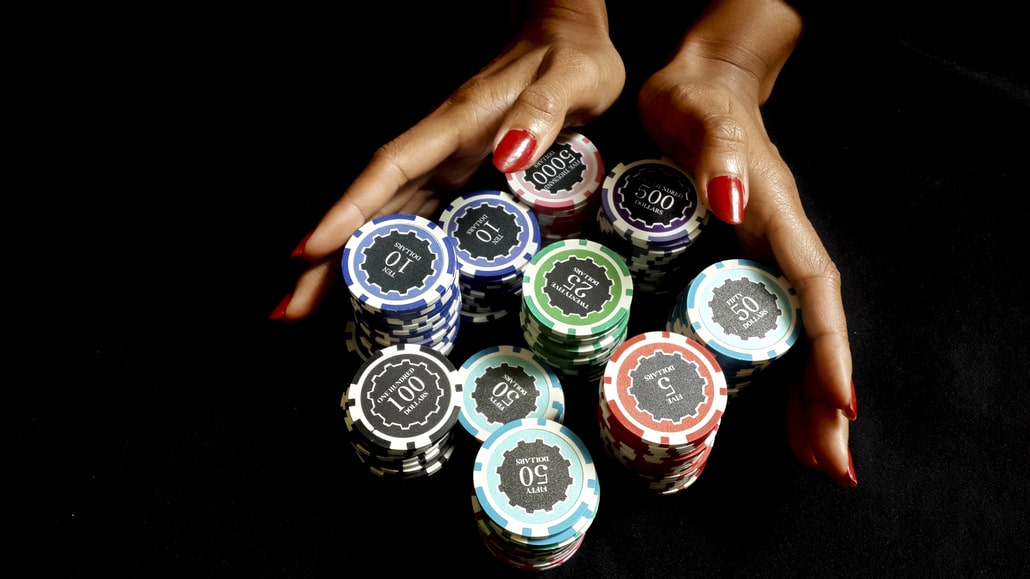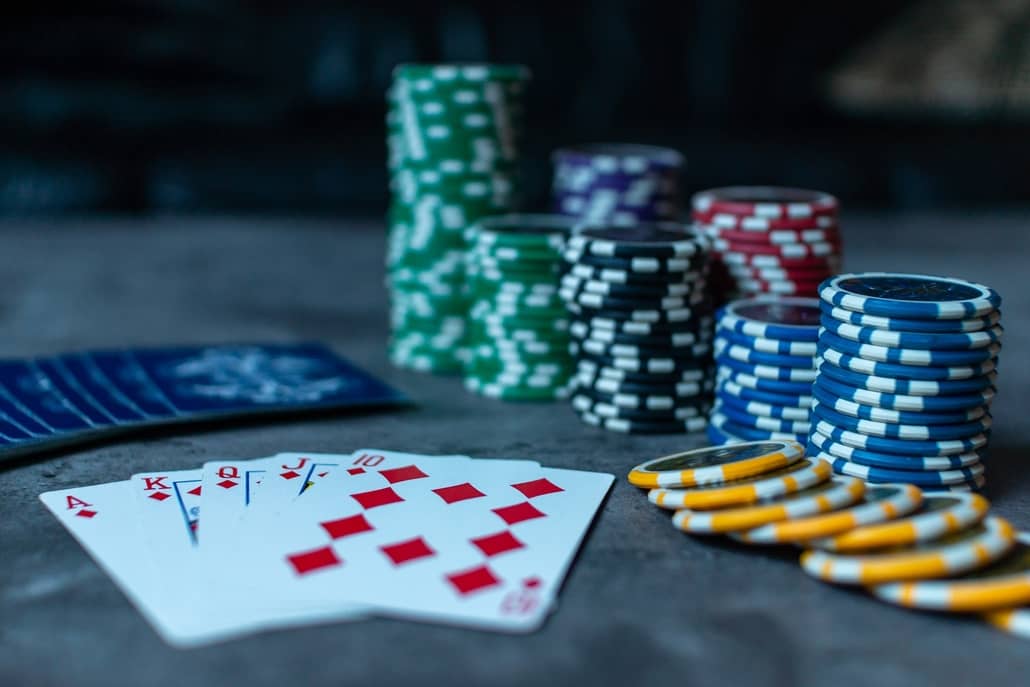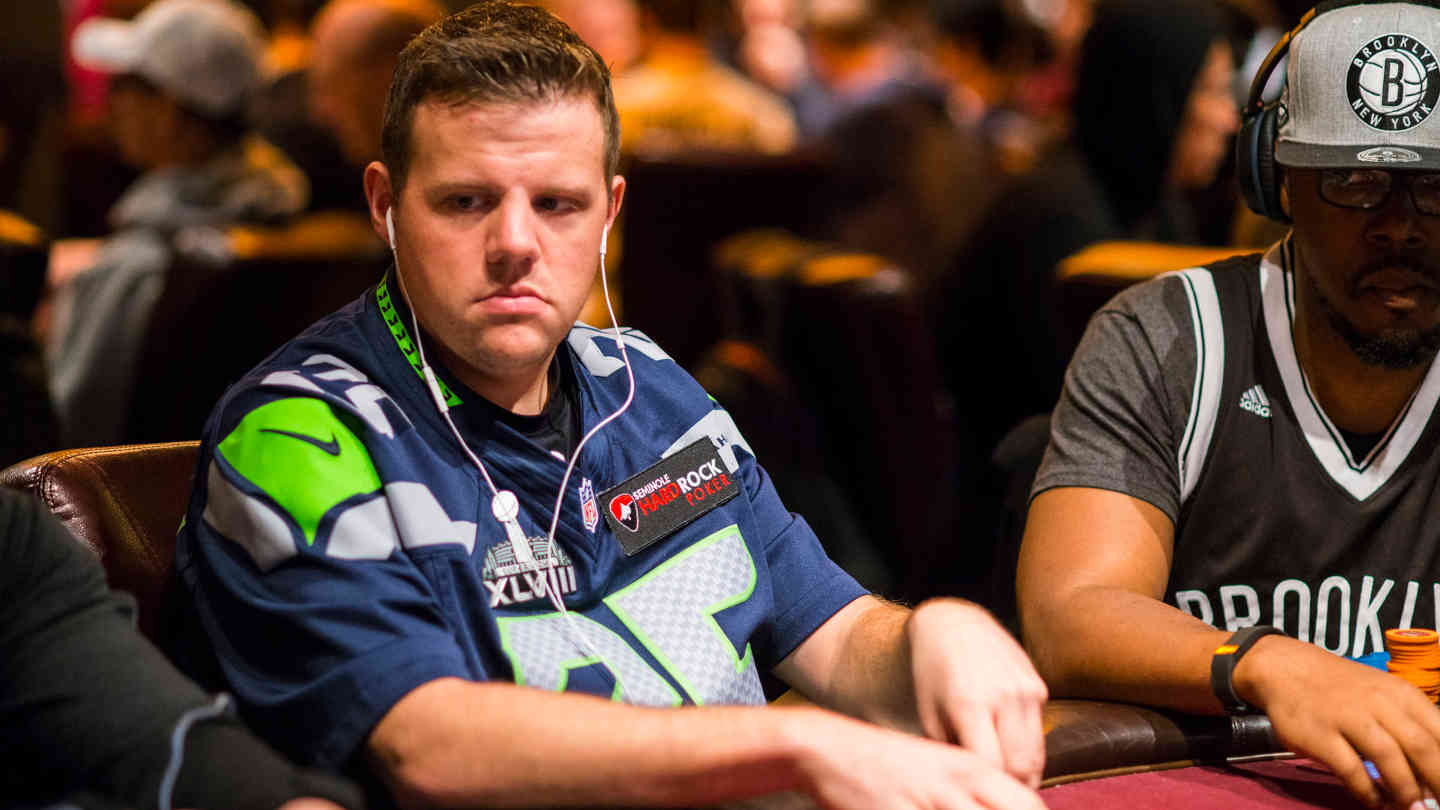Is Poker Gambling? Skill or Luck Debate Over Once and For All

9 minutes
Last Updated: March 19, 2024
How can we answer for sure if poker is a game of luck or skill?
On the one hand, there is a lot of luck seemingly involved in poker, as each individual hand can win big pots by the river. On the other hand, there is no denying that a small group of players who dedicate themselves to intense studying of the game come out on top more often than not.
And yet, the debate about poker being a skill game versus one based on luck continues to rage on because people view things from different angles.
Recreational players who play poker only once in a while may see poker as a game of luck, as they play so few hands and often depend on luck for success or failure. Poker pros, on the other hand, who spend most of their waking hours playing and studying the game, know better, as they have made careers out of exploiting the other group.
All things considered, poker is clearly a game of skill in the long run, with an element of luck in any individual hand or even a session.
Anyone can win a hand no matter what they have, but the best players will certainly prevail if they keep playing against inferior players. That’s a simple fact.
So, let’s dive a bit deeper to see why some see poker as a game of skill while others can swear it is gambling. By understanding the arguments for both sides, you will clearly see the answer to this question once and for all.
Is Poker Skill or Luck Game – The Role of Luck?

If you observe every poker hand in isolation and simply deal out the cards, you may notice that some very random hands end up winning against much stronger hands, pointing to poker being just another game of luck akin to blackjack or baccarat.
However, poker hands are not played in isolation, and cards aren’t simply rolled out all the way to the river to determine the river.
But even with all the betting, raising, calling, and folding going on, you may still notice that random players who play theoretically very bad poker end up winning big from time to time.
Once again, looking at this may convince you that poker is a game of luck, but looking a bit deeper at how those players do over the long run will tell you a different story.
Since poker is a game based on mathematics and slight edges, deviations from long-term expectations can be massive.
A bad poker player can indeed catch a run of good cards over a session, especially in live poker, and win big on the night. But keep in mind, even a long live poker session will only see about 200-300 hands dealt in total.
For a good comparison, you can imagine tossing a coin just 10 times. You may very well end up getting heads 7 times and tails just 3 times, making it seem like heads is a big winner in the match-up.
If you were to toss the coin 100 times, getting 70/30 would be way less likely but still possible. More likely, you would come closer to 60/40.
But if you tossed the coin a million times, there is nearly no chance to get 60/40. Instead, you would get very close to 50/50, provided the coin was not abnormal in some way.
With that in mind, you should be able to understand why it takes a large sample of poker hands to make luck less of a factor in poker, as the numbers only even out when given a chance.
Is Poker Gambling? How Important Is The Skill?

We have been asking is poker luck or skill, but we have not actually defined what skill is in poker and how one player would be more skillful than another.
After all, an innocent bystander may look at the game and see players throwing their chips without much sense, often without having a real hand, and sometimes even folding strong holdings for no apparent reason.
If you asked a poker pro what skill is in poker, they could probably go on a rant that would last for hours, explaining the different plays, concepts, and dynamics that they use when playing the game.
The truth is that there is a lot more to poker than just blindly throwing chips into the pot and hoping you make the best hand, as a poker strategy like that simply doesn’t work.
We have all seen players who do exactly that come out to play poker over and over again. More often than not, they go home completely broke.
Poker skills include everything:
- From picking the right starting hands,
- Sizing your bets and raises for optimal results,
- Knowing when to bluff,
- Understanding different player tendencies,
- and much more.
A skillful poker player can maneuver each betting street in each hand to his advantage, gradually building expected value in every hand and capitalizing on the results over the long run.
The concept of skill in poker has been proven over and over again, with big winners constantly coming back and winning over big samples and big losers continually losing over their entire lives.
One could argue that some players are simply luckier than others, but it is hard to believe that the hardest-working players are also the luckiest, not to mention that simple math doesn’t support the claim either.
Difference between Poker and Games of Luck

When discussing whether poker is luck or skill, it is very important to remember that the casinos or online poker sites that run the games don’t really care who wins and who loses. Unlike games of luck that are played against the house, poker is played between players, with the house taking its rake one way or another.
For the organizers, players must lose in most games for them to make a profit, which is why they offer games of luck like blackjack or baccarat, which actually aren’t true games of luck either. These games are stacked in the favor of the casino, with no shot to beat them in the long run.
On the other hand, when you play poker, it’s just you against the other players, and it all comes down to how you each decide to play your cards.
The sheer fact that everyone is on the same footing to start means that you all have opportunities to outplay each other.
With so many different moves, bet sizes, and decisions you can make, there is always going to be a difference between the expected long-term results of different players.
In that regard, poker stands out from other card games, as it allows you to win hands whether you are dealt the best cards or not.
The opportunity to win without having the best hand alone is enough to make poker a game that you can actually win at, and countless other factors come into play as well.
How Can I Get Good at Poker?
Instead of asking is poker luck or skill, you should focus on how to improve your own poker skills and become a better poker player.
Fortunately, there are many ways you can do this, and it all begins with shedding the notion that the player who gets the luckiest is going to win. That’s simply not true!
You should accept that poker is very much a game of skill and one that requires you to learn many different concepts to improve your expectations.
You will need to learn when and why to play different hands, how to size up your bets, how to calculate your pot odds and implied odds, how to manage your bankroll, keep your mental state in balance, and much more before you can be a truly great poker player.
Instead of focusing on “movie poker skills,” like reading your opponent’s eyes and talking them into a call, think about the mathematics of the game, learn to analyze poker ranges, and continue studying every day.
If you want to get exceptionally good at poker, you will need to study hard, just as you would need to get good at any other skill in life.
While most players simply show up at the table and start playing, you can do better by spending the time needed to prepare for each session and gradually improving your poker skillset over time. You can even join a poker training site, whose existence also clearly indicates that poker is a game of skill, not gambling.
When you have done it long enough, you will have acquired so many different skills and tricks that no amount of luck will help your opponents beat you.
While they will be left asking is poker luck or skill, you will be collecting their chips and enjoying the spoils of your hard-earned profits.
What’s the Verdict? Is Poker Luck or Skill?
To answer the question is poker luck or skill, we went ahead and investigated the different reasons players see the game as both things, and the conclusions are pretty clear.
In the long run, poker is clearly a game of skill in which the more skillful players will always come out on top, and the ones who rely on luck will get the worst end of the deal. Dedicated poker software has proven this without a shadow of a doubt.
If poker were luck or gambling alone, it wouldn’t inspire young, intelligent people from all over the world.
On the other hand, it is also clear that luck, or variance, plays a massive part in the outcome of any single hand or session, which is why it may seem to a casual player that it’s all about chance and destiny.
If you are serious about the game and plan to spend some serious time playing it, we recommend focusing on the skill element of poker heavily and avoiding the trap of thinking poker is all about luck.
On the other hand, if you play poker once in a while for some fun, and you don’t mind the results either way, keep doing what you are doing and see if you can get lucky enough to beat the odds once in a while, just like you would when trying to beat a slot machine.


















